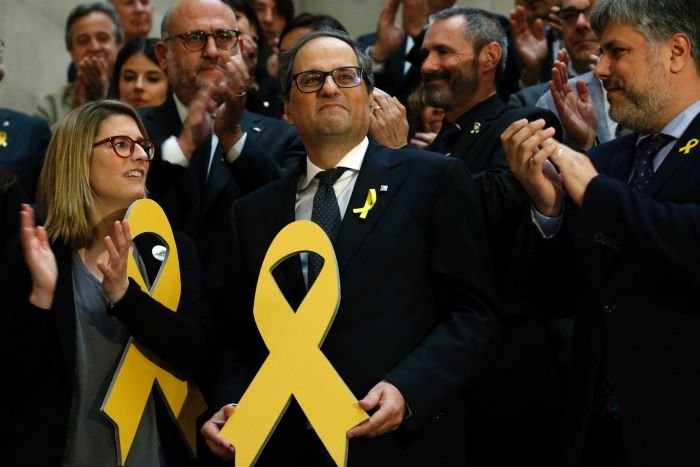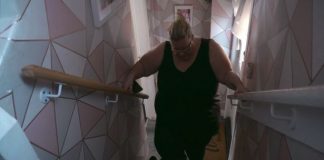
Quim Torra: Catalonia elects hardline separatist as new regional president.
The Catalan parliament has voted in a hardline separatist as leader, heralding an end to seven months of direct rule from Madrid but also more political uncertainty in a region that retains a mandate to seek a split from Spain.
Mr Torra is a former lawyer and publisher with little politcal experience
He was hand-picked as candidate by former regional leader Carles Puigdemont
Mr Torra referred to Mr Puigdemont as the legitimate leader of the region
The election of Quim Torra as regional leader will allow the wealthy region to run its own affairs for the first time since October, when Madrid imposed direct rule after sacking the previous administration after it declared independence.
It should also lead to Spanish Prime Minister Mariano Rajoy securing the backing he needs from regional parties to implement much-delayed central government budget plans.
But it is unlikely to ease tensions between Madrid and Barcelona.
The deeply-divided Catalan parliament voted 66 in favour, 65 against and four abstentions for the election of Mr Torra, a former lawyer and publisher with little political experience.
The simple majority was what he needed to be voted leader after failing to get an absolute majority in a ballot on Saturday (local time).
Following the vote, pro-independence lawmakers stood to sing the Catalan anthem.
Mr Torra, who was hand-picked as candidate by former regional leader Carles Puigdemont, then embraced members of parliament who formed a line to congratulate him.
Many wore yellow ribbons in honour of Catalan politicians held in custody in jail for their role in October’s illegal independence referendum.
In a speech to parliament on Saturday, Mr Torra promised to work towards a Catalan republic and referred to Mr Puigdemont, who is in Berlin waiting for a German court to rule on an extradition request from Spain, as the legitimate leader of the region.
The Spanish Government called the speech confrontational and a member of the Catalan parliament for Mr Rajoy’s People’s Party (PP), Andrea Levy, said in a television interview that Madrid would apply direct rule again if the new administration overstepped the law.
Fearing an investor backlash, over 3,000 companies have moved their registered headquarters out of Catalonia since October, while tourism also dipped after the referendum.
But over the whole of 2017, visitor numbers to Catalonia rose and its economy grew strongly, outpacing the Spanish regional average.
Police sealed off part of the park surrounding the Catalan parliament in central Barcelona for the vote, but streets were quiet with no demonstrations.













